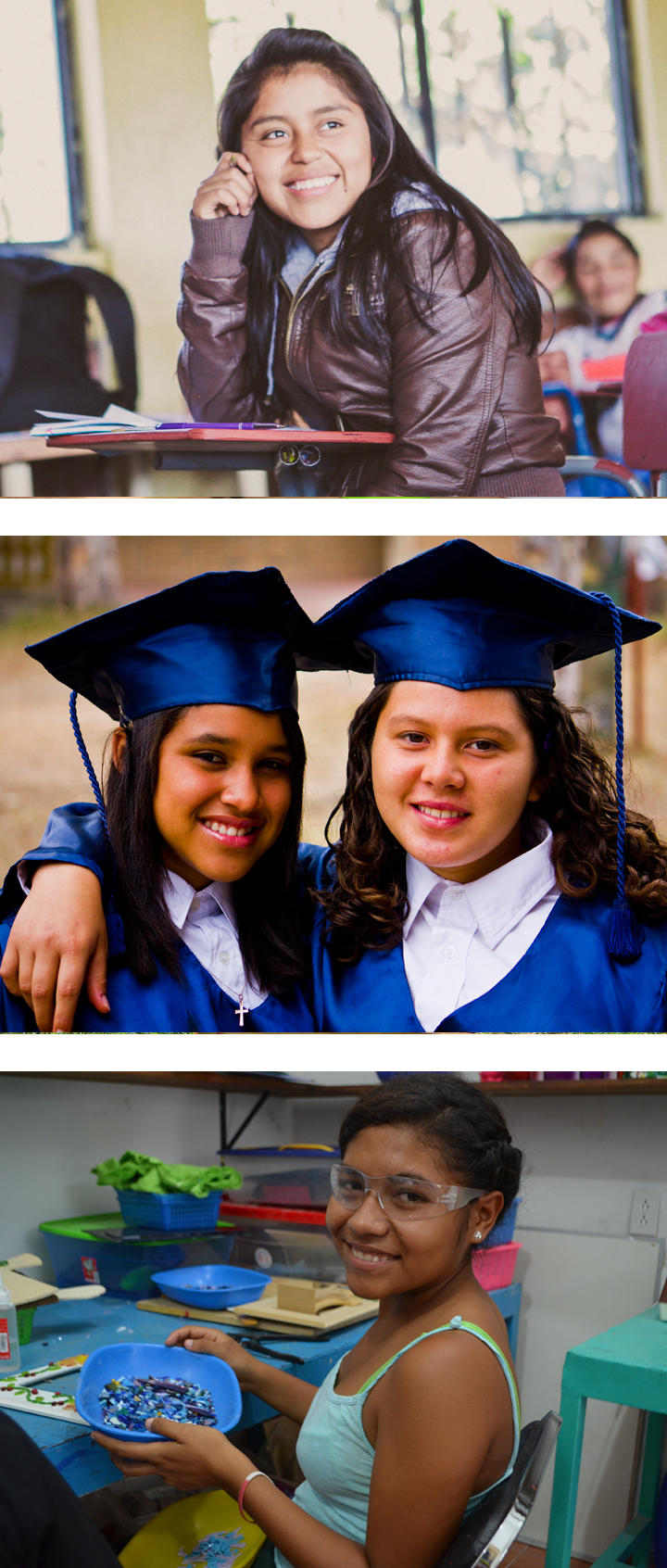Girls’ Empowerment Programs
Gender Issues in Latin America
NPH USA supports the homes, healthcare and educational programs of Nuestros Pequeños Hermanos (NPH) in nine countries. According to various reports of those countries:
- Half of the countries with the highest rates of femicide (murder of women and girls) are in Latin America, including El Salvador, which has the highest in the world.
- Up to 40 percent of women in the region have been victims of violence at some point during their lives.
- The female unemployment rate is higher than that of males (9.1 and 6.3 percent).
- Women earn between 60 and 90 percent of men’s average income.
- Women only hold 23 percent of senior management positions.
- Households led by women remain poorer than those headed by men.
- Social norms still prevent working women from balancing family responsibilities and work outside the home. Even amidst signs of progress, significant gender gaps still exist in rural settings, low-income households, and some ethnic groups.
Sources: The Economic Commission for Latin America and the Caribbean, The United Nations and The World Bank
 Youth Development Programs at Our Homes
Youth Development Programs at Our Homes
All of the NPH homes have youth programs that provide opportunities for our children to develop their skills and grow. These include spiritual groups, sports teams, choirs and orchestras, theater and dance groups, and leadership development groups. Both girls and boys are engaged in all of the groups. The age range of participants varies by program and home.
In addition, NPH has joined the growing global effort to educate, support, and empower women and girls to realize their fullest potential. This not only benefits the participants, but also the social, political, and economic stability of societies worldwide. Currently four of our homes have formal girls’ empowerment programs.
“Chicas Poderosas” (Powerful Girls)
The NPH homes in the Dominican Republic, Guatemala, Honduras and Mexico have “Chicas Poderosas” programs. Activities include discussions, workshops, service projects and field trips. Through sustained participation in the programs, our young women will:
- Have greater self-esteem and confidence to be themselves and to voice their ideas and opinions.
- Make healthy and appropriate decisions regarding their relationships and life.
- Actively educate themselves about the world and pursue their dreams.
- Demand the respect, love, care, and support they deserve.
- Stand up for others who are less fortunate.
- Be creative in their solutions to personal, local, and global challenges.
- Realize their full potential as people.
By the Numbers
| Country | Participants | |
| Dominican Republic | 30 | |
| Guatemala | 30 | |
| Honduras | 174* | |
| Mexico | 82 | |
| TOTAL | 316 |
…
*Includes the main NPH Honduras home and local communities.
Higher Education
Providing girls with an education helps break the cycle of poverty. Educated women are:
- Less likely to marry early and against their will
- Less likely to die in childbirth
- More likely to have healthy babies
- More likely to send their children to school
After secondary school, each child has the opportunity to finish a technical course. Those who have the aptitude and desire may pursue a university degree if they give an additional year of service to help their NPH family after completing their studies. Currently 215 of the 366 NPH youths in university are female.
How You Can Help
Please make a gift to support our girls’ empowerment programs.
NPH USA is a registered 501(c)(3) nonprofit corporation, Federal Tax ID# 65-1229309. Donations are tax deductible to the extent provided by law. All donated funds are diligently appropriated and an audited financial statement is available upon request.
More Information:
• Our Homes
• Our Children
• Outreach Programs
• Healthcare Programs
• Nutrition at NPH
• Sustainability Programs (PDF)
• Education Program
• Higher Education Program
• The Seattle Institute Leadership Program
• Girls’ Empowerment Programs Fact Sheet (PDF)








